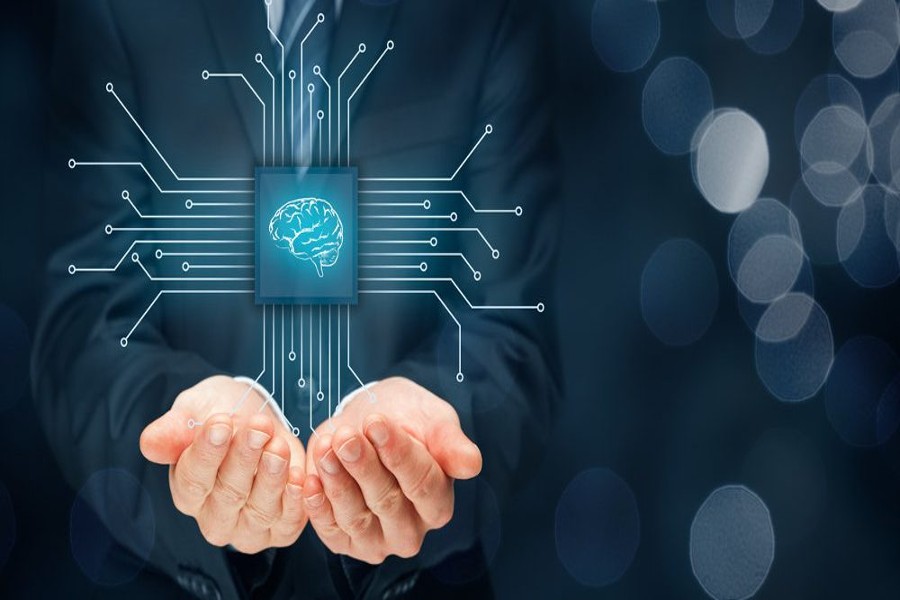AI for Business
With the changing facets of modern business, Artificial Intelligence has also played a key role as a determinant of operational efficiency and strategic planning. Indeed, business operations and decision-making processes have been redefined through this transformative technology.
AI is defined as a machine’s ability to adjust to new inputs and to simulate the cognitive human ability of learning and problem-solving. According to Varian, this simulation can be conducted in systems that involve machine learning, natural language processing, and applications of robotics. This formal structure of inference systems based on rules and utilities, enable systems to exhibit human-like patterns of action through the evaluation of related data. Using AI technologies, businesses can focus on processes and resource feasibility, and also react with agility and flexibility towards market demands.
Enhancing Efficiency through Automation
AI-driven transformation, and especially Bases to the Core – business operations automation. Such systems automate repetitive tasks in all the business operations such as finance, human resources, or customer care. In the case of finance, for example, AI can replace people in processing invoices, generating financial records and reports as well as cash register withdrawal, and fraud detection. This means no inaccuracies and speeds of transactions. With the aid of AI-powered chat boxes, customer care will be possible to be conducted by machines as the simple questions will be addressed by them while the more complicated issues will be directed to the human experts.
Leveraging Data for Informed Decision Making
It is undeniable that data has become a strategic asset for businesses, and AI is the vehicle that will unlock its immense value. AI-powered Analytics tools process vast quantities of structured and unstructured data to uncover valuable insights that shape decisions. Machine Learning systems can identify patterns, trends, and correlations that remain obscured in a large dataset. Thus, companies leverage more accurate forecasting, risk assessment, and opportunity identification. For instance, in the retail sector, AI-driven demand forecasting models leverage historical sales data, seasonal trends, and other external factors to predict future consumer demand, eliminating stock outs and optimizing inventory.
Workforce Optimization
Workforce optimization solutions powered by AI assist companies in better managing their human resources. AI algorithms simplify a number of HR management processes, including hiring, performance reviews, scheduling, and training of employees. Organizations may maximize productivity, lower attrition, and promote a culture of ongoing learning and development by matching skill sets with job requirements and forecasting future personnel requirements.
Facilitating Strategic Planning and Forecasting
AI is changing the game in strategic planning as an enabling tool that offers insights and predictions that suggest actions. Forecasting models made possible by AI allow businesses to understand where the market is heading, who their competitors are, and their potential growth areas. Specific algorithms run on past data, consumer patterns, or even large economic indicators may predict future outcomes with a high degree of accuracy, helping companies plan on how to allocate their resources, which products to invest in, and which markets to enter or expand their presence. Additionally, AI allows better scenario planning where the systems simulate different alternative scenarios and their impact on businesses to assess resilience.
Empowering Customer Service Excellence
Another area where AI became a key differentiator is customer service. Nowadays, it is not only capable 24/7 response but also an interaction with chatbots, virtual assistants, and sentiment analysis algorithms to provide not only human touch but ability to be managed in seconds. Thus, systems can respond to customer requests, provide best-matched products, help with order tracking, and more, which reduces the response time and increases customer satisfaction. Furthermore, sentiment analysis can also be done by machine learning with good precision. As an example, the system might track social media for the new comments on the products or reviews, get customer surveys analysis, etc. Thus, the systems can see the sentiment behind the post and understand if there is any problem with the company’s brand perception.
Ensuring Ethical and Responsible AI Deployment
As the use and dependency on AI technologies are increasing, ethical considerations and responsible deployment are critical. To diminish the risks and establish partnerships based on trust, any use of AI systems should be transparent, fair, and accountable. The key ethical protections in the context of AI deployment are algorithmic bias identification, data privacy and data protection, human inclusion, and other preventative aspects. Moreover, policymakers, business involvement, and AI developers at the national level should be prominently engaged in creating legislation and ethical guidelines regarding AI in individual fields of application.
Conclusively, Artificial Intelligence is a game-changing force that is fundamentally redefining the ways businesses execute their operations and planning in all industries. Through leveraging AI-powered automation, data analytics, and predictive modelling, agencies could streamline their operations, improve resources allocation and make informed decisions to advance sustainable development. Nevertheless, the achievement of the AI’s full capabilities demands a comprehensive approach that considers ethics, legislations, and technological disruptions. As AI advances further as a critical enabler for businesses, companies that are open to change and adaptation to AI strategies will maintain their agility, competitiveness, and resilience in the accelerating digital globe.
Featured Image
https://qwayhealthcare.com/blog/ai-healthcare-value-addition/
Source:

